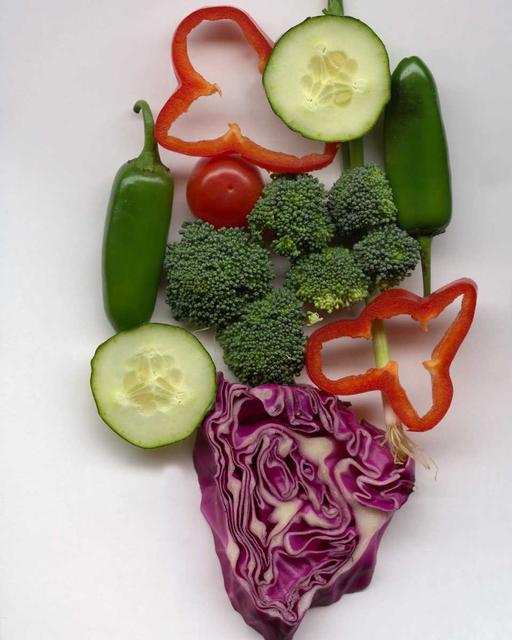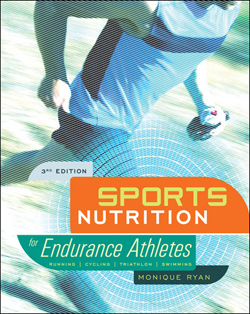Nationwide Teleconsulting • Sports Nutrition E-Programs


A Baker’s Dozen Tips to Keep Your Holiday Eating Healthy
 Stay Lean and Keep Your Training Program on Track this Holiday Season
Stay Lean and Keep Your Training Program on Track this Holiday Season
If you have any regrets about how much you ate on Thanksgiving or the day after- put it behind you and develop an effective holiday action plan. The rest of the holiday season doesn’t have to be a total disaster. On average, weight gain over the holiday season from Thanksgiving to New Year’s is only one to two pounds. Sticking to your regular exercise routine can prevent this gain, or help you lose weight after the New Year.
As many of us are well aware, attempts at healthy eating often goes out the window during the holiday season. Opportunities to overindulge beckon at every corner. Supermarket aisles are filled with goodies, treats are available at work, and alcohol is abundant at dinners, parties, and other holiday festivities. And finally, despite all the good intentions behind it, the holiday season is a stressful time for many of us, and keeping up with a healthy eating and workout routine can help you stay on top of stress. Of course you expect that you will indulge a bit, just maintain a reasonable approach and don’t let it spiral out of control.
Making a big picture assessment
This is the easy part. If you have not done so already, map out your training goals for next season. Look at the big picture. How important is it to stay focused on healthy eating for the next few weeks? Will a few pounds weight gain make the challenges of the 2014 season that much more difficult? Be realistic. This is not a good time of year to “go on a diet.” Your plan may be to simply prevent any further weight gain.
Write down your health/nutrition/weight goals through New Year’s. Everyone’s overall plan is to be vigilant and to be prepared for the festivities so that they can stay on top of these goals. Here are a baker’s dozen tips to get you through the next few weeks.
1. Review your training and workout schedule. Despite the obvious benefits of maintaining your fitness level and burning excess calories, exercise can also motivate you to stay on top of your nutrition goals. You won’t want to waste a great workout on too many goodies at the office. You can also program for own food environment for success and make sure that you have plenty of healthy choices on hand at home.
2. Eat regular meals on time. If you are going to a dinner party or meeting friends for food and drink after work, don’t miss a meal to balance out the calories. Packing a healthy low fat lunch makes sense, but skipping meals usually makes you ravenous and you are in danger of eating everything in sight, including many high calorie choices.
3. Have a light snack before attending a high calorie event. Like the strategy listed above, this also helps prevent overeating when at holiday events. Have a small portion of a low fat protein with some vegetables or a piece of fruit about an hour before heading out.
4. Start each day with a plan. Prepare several days ahead for outings. For big nights out or big meals, make sure that you have plenty of healthy eating days leading up to the event. This means paying attention to your diet every day, keeping groceries on hand, and preparing meals and snacks ahead of time. Freeze healthy meals if you need a quick low fat bite to eat in a hurry.
5. Consume a balance of foods, even at holiday events. Despite all your planning and compensatory behavior, don’t fill your plate with solely with rich, calorie-laden treats. Balance it out with low fat, lower calories options such as fruits and vegetables. So indulge, but be picky about your splurges, and keep the reins on a bit.
6. Remember that alcohol is packed with calories. Choose light beer or wine over hard liquor or mixed drinks. Some potent large mixed drinks can reach 500 calories per serving. Drinking too much can often lead to overeating.
7. Keep an eye on both food and alcohol portions. Even with good choices and a balance of choices, portion control is a very useful, if not one of the most important tools that you have available.
8. Stock up on healthy snacks when you go grocery shopping. Buy plenty of fruits and vegetables, and look for items that you can pack with you for work snacks or when out for long days preparing for the holidays.
9. Are you throwing your own party? Make sure that you put plenty of lower calorie and low fat choices on the menu. Have plenty of vegetable dishes and lower fat versions of traditional favorites.
10. Going to a friend’s party? Bring your own healthy dish so there will at least be one safe item for you to consume.
11. Pace yourself. Savor your food and try to enjoy and be mindful of every bite. Pay attention to when you are getting full and stop at a comfortable level of fullness. This is a very effective way to practice portion control. Remind yourself that feeling horribly stuffed to uncomfortable and can result in a food hangover the next day. Remember that the first four bites of a treat taste as good as the last four bites.
12. Leave what you don’t want. No, you really don’t have to clean your plate.
13. If you have a less than stellar food and drink day and overdue it, make that the end of it. One bad day is just one bad day and you can right back on track. It won’t be the end of a good food plan.
Monique Ryan is a Certified Specialist in Sports Dietetics with over 25 years of experience helping active people optimize their nutrition and body composition. Contact us at 847-864-8689 to schedule your consult. Ryan has worked with elite athletes in soccer, football, basketball, triathlon, cycling, and mountain biking.
She is the author of Sports Nutrition for Endurance Athletes, 3rd edition.
